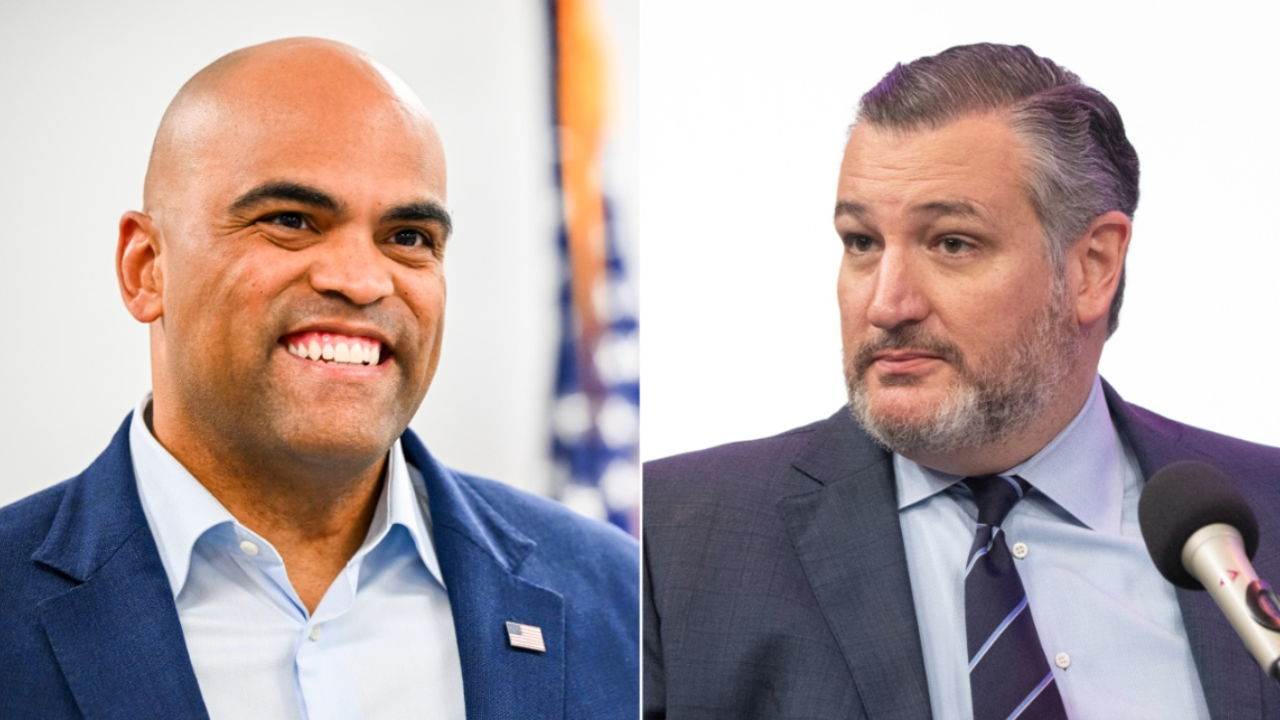The Texas Senate Debate: A Clash of Ideologies
In a high-stakes showdown that has captured national attention, the Texas Senate debate between longtime Republican incumbent Ted Cruz and Democratic challenger Rep. Colin Allred showcased the stark contrasts between the two candidates. With only one debate taking place before the November election, the atmosphere was charged with tension, name-calling, and fiery exchanges. Abortion, immigration, and transgender rights emerged as the foremost issues fueling the contentious dialogue.
Digging into Abortion Rights
The debate’s most heated moments revolved around abortion. Cruz relentlessly attempted to position Allred as a radical, pointing to his voting record to discredit any notions of him being a moderate figure. Allred, on the other hand, swung back with powerful rhetoric, labeling Cruz as an "extremist." He criticized Cruz for opposing exceptions to abortion laws, particularly in cases of rape, saying, “You’re not pro-life. It’s not pro-life to deny women care so long that they can’t have children anymore.” This direct confrontation set the tone for a tense back-and-forth that defined much of their discussion.
Cruz countered by saying he supports parental notification and consent laws before minors can undergo abortions, asserting that most Texans agree on limiting late-term abortions. He framed his stance within the broader context of Texas values, claiming a wide consensus on these issues among residents. However, he faced pointed questions from the debate moderator, WFAA’s Jason Whitely, who pressed Cruz about his position on exceptions for rape and incest. Cruz’s defensive response attempted to redirect focus back to Allred’s voting history.
Immigration: Accusations and Deflections
As they shifted to immigration and border security, the candidates continued their sharp exchanges. Allred accused Cruz of failing to support a crucial bipartisan border security deal that, he argued, would have significantly addressed the issue. He characterized Cruz’s record as one that “does worse than nothing,” highlighting a consistent pattern of voting against measures aimed at bolstering border security.
Cruz didn’t back down, firing back with claims that Allred’s positions mirror those of Vice President Kamala Harris. He pointed to repeated votes against funding for border wall construction and accused Allred of being part of the problem rather than the solution. The exchange highlighted the divergent views on how best to tackle the complex issues surrounding immigration and border control.
The Transgender Rights Debate
Transgender issues also took center stage with Cruz attempting to rally support against the inclusion of trans women in female sports. Allred dismissed Cruz’s fears as “ridiculous,” redirecting attention back to the debate over abortion. In doing so, he argued that Cruz was trying to distract voters from pressing issues like women’s health care. This divergence illustrated the strategies at play—Cruz emphasizing social conservatism while Allred sought to humanize the debate by focusing on healthcare rights.
Cruz’s history of supporting restrictive policies regarding transgender students was juxtaposed against Allred’s recent legislative actions that would allow transgender athletes to compete in line with their gender identity. The debate became a battleground not just for policies but for the candidates’ images, with both attempting to paint the other as out of touch with Texan values.
The Stakes Are High
With voters gearing up for November, the stakes of this Senate race couldn’t be higher. Recent polls indicate that Cruz holds a narrow lead, yet the debate provided Allred with a crucial platform to challenge the incumbent’s narrative. Cruz, a two-term senator, is aiming to retain a seat that many analysts predict will favor the Republican Party.
As the election looms, the exchanges between these candidates provide a snapshot of the broader ideological battles playing out in Texas and the nation. Each debate moment serves not only as a reflection of their policies but also shapes the public’s perception of their capability to address the pressing issues facing the state and the country.
Through this electoral showdown, residents of Texas are confronted with defining questions about their future, as each candidate attempts to sway undecided voters in a politically charged environment. Without a doubt, this debate has set the stage for an intense campaign season ahead.
